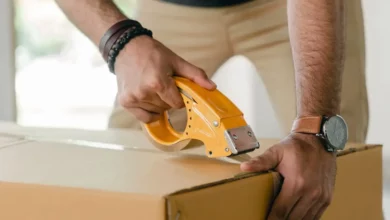Can You Leave Furniture in an Apartment

Yes, you can leave furniture in an apartment. However, there are certain factors to consider before doing so.
Leaving furniture in an apartment may depend on the terms of your lease agreement, the condition of the furniture, and the landlord’s policies. It is important to communicate with your landlord or property manager to understand any specific guidelines or restrictions regarding furniture.
Additionally, make sure to thoroughly clean the furniture and assess its condition to avoid any potential damage charges. By following the necessary steps and being aware of any rules, you can determine whether leaving furniture in your apartment is possible and allowed.
Pros And Cons Of Leaving Furniture In An Apartment
Leaving furniture in an apartment has its pros and cons. While it can save time and effort during a move, it may lead to potential damage or loss of security deposit. Consider factors like cost, convenience, and landlord’s policies before making a decision.
Leaving furniture behind when moving out of an apartment is a decision that many tenants grapple with. On one hand, it may seem convenient and cost-effective, while on the other hand, there are concerns about potential charges from the landlord and risks of damage or theft.
In this section, we will explore the pros and cons of leaving furniture in an apartment to help you make an informed decision.
Pros Of Leaving Furniture Behind When Moving Out:
- Convenience and time-saving aspect: By leaving furniture behind, you eliminate the need to dismantle, pack, and transport bulky items. This saves you time and effort during the moving process.
- Saving money on moving costs: Moving can be an expensive endeavor, and furniture removal and transportation can significantly contribute to the overall costs. Leaving furniture in your apartment can help you avoid these expenses, especially if you plan on purchasing new furniture for your new place.
Cons Of Leaving Furniture Behind When Moving Out:
- Incurring additional charges from the landlord: Landlords often have strict rules and regulations regarding the condition in which you must leave the apartment. If you leave furniture behind that violates these guidelines or causes damage to the property, you may be subject to additional charges or deductions from your security deposit.
- Risks of damage or theft: Leaving furniture behind means it will remain unattended in the apartment. There is a risk of damage caused by natural disasters or accidents, as well as the possibility of theft if the property is not properly secured.
When deciding whether to leave furniture in your apartment when moving out, it’s essential to weigh these pros and cons carefully. Consider factors such as the condition of the furniture, your relationship with the landlord, and the costs associated with removal and transportation.
Ultimately, the decision should be based on what makes the most sense for your specific situation.
Factors To Consider Before Leaving Furniture In An Apartment
Before leaving furniture in an apartment, there are several factors to consider. These include the terms of your lease, the condition of the furniture, and whether or not you have permission from your landlord. It’s important to carefully evaluate these factors to avoid any potential issues.
Leaving furniture behind when moving out of an apartment can be a practical and cost-effective choice. However, before making the decision to leave furniture behind, there are several important factors that should be taken into consideration. These factors include:
Landlord’s Rules And Regulations:
• Consult the lease agreement to determine if there are any specific instructions regarding furniture removal.
• Some landlords may require tenants to remove all furniture from the apartment before vacating.
Reviewing The Lease Agreement:
• Carefully review the lease agreement to see if there are any clauses related to furniture abandonment.
• Understanding the terms and conditions in the lease can help make an informed decision about leaving furniture behind.
Seek Clarification From The Landlord:
• To avoid any misunderstandings, it’s advisable to seek clarification from the landlord or property management regarding their stance on leaving furniture behind.
• This can provide valuable insights and help you make an appropriate decision.
Condition And Value Of The Furniture:
• Evaluate the condition of the furniture and consider whether it is worth leaving behind.
• If the furniture is old, damaged, or in poor condition, it may be more practical to dispose of it.
Assessing The Quality And Durability:
• Consider the quality and durability of the furniture.
• If the furniture is well-built and can withstand continued use, leaving it behind may be a viable option.
Determining Its Resale Value:
• Take into account the potential resale value of the furniture.
• If the furniture holds value and can be easily sold, it might be a better choice to sell it instead of leaving it in the apartment.
Future Plans And Personal Preferences:
• Think about your future plans and whether the furniture will be suitable for your next living space.
• If the furniture aligns well with your future plans and personal preferences, it might be worth keeping.
If Furniture Suits The Next Living Space:
• Consider whether the furniture will fit and complement the aesthetics of your next living space.
• If it seamlessly blends with the decor and meets your requirements, leaving it behind can be a practical option.
Evaluating Long-Term Investment:
• Assess the long-term investment potential of the furniture.
• If the furniture is of high quality and fits your long-term needs, leaving it behind can save the cost of buying new furniture in the future.
Considering these factors will help you make an informed decision about whether to leave furniture behind when moving out of an apartment. By reviewing the landlord’s rules, and carefully assessing the furniture’s condition, resale value, and suitability for future plans, you can determine the best course of action that aligns with your needs and preferences.
Properly Preparing Furniture For Leaving In An Apartment
Ensure your furniture is properly prepared before leaving your apartment by following these steps.
Moving out of an apartment can be both exciting and overwhelming. One of the key aspects of this process is the proper preparation of your furniture before leaving. Whether you plan to leave some furniture behind or you simply want to ensure everything is in good condition for the next tenant, proper cleaning, maintenance, and storage procedures are essential.
Here are some important steps to take when preparing your furniture for living in an apartment:
Cleaning And Maintenance:
- Dust and remove any loose dirt from the furniture surfaces.
- Vacuum upholstered areas thoroughly to get rid of any crumbs or debris.
- Use a mild cleaning solution suitable for the specific material to remove stains and odors.
- Polish wooden furniture to restore its shine and protect it from damage.
Address Any Repairs Or Damages:
- Inspect each piece of furniture for any damages, such as loose screws or broken parts.
- Repair or replace any damaged components to ensure the furniture is in good working condition.
- Touch up any scratches or dents using appropriate repair kits or materials.
Proper Storage Procedures:
- Determine if the furniture will be stored on-site or in a different location.
- Clean and dry furniture thoroughly before storing to prevent mold and mildew growth.
- Disassemble larger pieces, if possible, to save space and facilitate easier transportation.
- Keep furniture covered or protected with blankets or furniture wraps to prevent scratches or damage.
Disassembling Larger Pieces:
- Take apart any larger furniture items, such as beds, tables, or shelves, following the manufacturer’s instructions.
- Keep track of all screws, bolts, and other small parts by storing them in labeled bags or containers.
- Take pictures or make a diagram to help with reassembly later on.
Wrapping And Protecting Furniture:
- Use bubble wrap, moving blankets, or furniture pads to protect delicate or valuable furniture during transportation or storage.
- Secure the protective materials using tape or plastic wrap to keep them in place.
- Pay extra attention to sharp edges or protruding parts that may cause damage.
Documentation And Communication:
- Take photographs of each piece of furniture from different angles to document their condition before leaving.
- Keep a detailed list of all the furniture you are leaving behind, including descriptions and current condition.
- Communicate with your landlord or property management to inform them of your decision to leave furniture behind and document any agreed-upon arrangements.
By following these proper preparation steps, you can ensure that the furniture you leave behind in an apartment is clean, well-maintained, and ready for the next tenant. Taking the time to clean, repair, and protect your furniture shows responsibility and consideration, making the moving-out process smoother for everyone involved.

Credit: kinginstallation.com
Alternatives To Leaving Furniture In An Apartment
Wondering what to do with your furniture when leaving an apartment? Explore these alternatives, such as selling, donating, or storing, to make your move easier and more efficient. Discover the best options to avoid leaving unwanted furniture behind.
Leaving furniture behind when moving out of an apartment might seem like an easy solution, but it can lead to complications and potential financial losses. Fortunately, there are several alternatives to consider. Whether you choose to sell, donate, or store your furniture, it is important to explore the various options available to you.
Here are some alternatives to leaving furniture in an apartment:
Selling Or Donating Furniture
- Selling furniture:
- Utilize online platforms like Craigslist, Facebook Marketplace, or eBay to reach a wider audience.
- Host a garage sale to attract local buyers and sell your furniture items in one go.
- Advertise your furniture through classified ads in local newspapers.
- Donating furniture:
- Contact local charities or non-profit organizations that accept furniture donations.
- Find donation centers nearby that can pick up the furniture from your apartment.
- Consider donating to organizations that cater to specific causes, such as homeless shelters or veteran support groups.
Online Platforms And Local Charities
- Online platforms:
- Utilize online platforms like Freecycle or Nextdoor to connect with individuals in your community who are in need of furniture.
- Join local Facebook groups that specialize in buying, selling, or exchanging used furniture items.
- Local charities:
- Get in touch with local charities that offer furniture collection services or have thrift stores where furniture donations can be dropped off.
- Research organizations that focus on assisting low-income families or individuals transitioning from homelessness.
Tax Considerations For Donations
- Understand tax deductions:
- Consult with a tax professional to understand the potential tax benefits associated with donating your furniture.
- Keep proper documentation of your donations, including receipts, as they may be required for tax purposes.
Furniture Storage Options
- Short-term or long-term storage facilities:
- Rent a storage unit to temporarily store your furniture until you find a new home or decide on its fate.
- Research facilities that cater specifically to furniture storage, offering climate-controlled units to prevent damage.
- Comparison of costs and security measures:
- Compare prices, security measures, and reviews of different storage facilities to find the most suitable option for your furniture.
- Look for facilities that offer insurance options to ensure you are protected from potential damage or loss.
Negotiating With The Landlord
- Potential arrangements for furniture removal:
- Communicate with your landlord to discuss possible arrangements for the removal of furniture.
- Inquire if they have any preferred methods for disposal or if they can recommend any services.
- Terms and conditions for compensation:
- Review the terms and conditions of your lease agreement regarding compensation for leaving furniture.
- Seek clarification from your landlord on any ambiguous or vague clauses to avoid misunderstandings.
Consider these alternatives to leaving furniture in your apartment to avoid potential issues and make the most of your furniture even after you move out. Choose the method that suits your needs, whether it’s selling, donating, or storing, and ensure a smooth transition to your new space.
Final Considerations Before Leaving Furniture In An Apartment
Before leaving furniture in an apartment, there are a few final considerations to keep in mind. Ensure that it is allowed by checking the terms of your lease, assessing the condition of the furniture, and making arrangements for its removal or storage if necessary.
Leaving furniture behind when moving out of an apartment requires careful consideration of the costs, benefits, and personal attachment involved. It’s essential to evaluate the financial implications, seek professional advice, and gain insights specific to the situation. Before making a decision, take a closer look at the following factors:
Weighing The Costs And Benefits:
- Assess the value of the furniture and compare it to the potential costs of moving, storage, or replacement.
- Consider the logistics of transporting the furniture and whether it’s worth the effort.
Financial Implications Of Leaving Furniture:
- Leaving furniture behind may result in additional charges from the landlord or property management.
- Understand any penalties or deductions that could be incurred from the security deposit.
Personal Attachment To The Furniture:
- Determine the sentimental value and emotional attachment to the furniture.
- Consider if letting go of the furniture will have any impact on your emotional well-being and sense of home.
Seeking Professional Advice:
- Consult with a moving expert or real estate agent to assess the best course of action.
- Obtain professional guidance on the potential consequences of leaving furniture behind.
Consulting A Moving Expert Or Real Estate Agent:
- A professional can evaluate the market and determine whether leaving furniture is a common practice in a specific area.
- They can provide insights into any legal or contractual obligations related to furniture removal.
Gaining Insights Specific To The Situation:
- Consider the unique circumstances, such as the type, condition, and age of the furniture.
- Evaluate potential future needs for the furniture in terms of size, style, or functionality.
Remember, when deciding whether to leave furniture in an apartment, it’s important to carefully evaluate the costs, seek professional advice, and consider the personal attachment involved. By considering these factors, you can make an informed decision that is best suited to your situation.
Frequently Asked Questions Of Can You Leave Furniture In An Apartment
Can You Leave Furniture In An Apartment When You Move Out?
Yes, you can leave your furniture in an apartment when you move out. However, it is important to check your rental agreement and communicate with your landlord. Some landlords may have specific requirements or restrictions regarding furniture left behind.
What Should You Do With Furniture When Moving Out Of An Apartment?
When moving out of an apartment, you have a few options for your furniture. You can take it with you to your new place, sell or donate it, or offer it to the next tenant. Remember to inform your landlord about your plans and properly clean the apartment before leaving.
Will Leaving Furniture In Your Apartment Cause Any Issues?
Leaving furniture in your apartment without proper communication may cause issues. Your landlord might charge you for furniture removal or disposal. Additionally, furniture left behind may prevent the apartment from being rented quickly. It’s best to have a clear understanding with your landlord before leaving any furniture behind.
Conclusion
It is essential to consider the implications of leaving furniture in an apartment when moving out. While some landlords may allow it, others may have strict policies against leaving any items behind. It is always best to communicate with your landlord or property management company in advance to understand their specific requirements.
If leaving furniture behind is permitted, take the time to clean and inspect the items to ensure they are in good condition. Repair any damages, and dispose of any unwanted or broken items responsibly. Remember, leaving furniture behind without permission or in poor condition can lead to potential charges or a negative impact on your rental history.
So, be sure to follow the appropriate procedures and leave your apartment in the best possible condition to avoid any complications.










